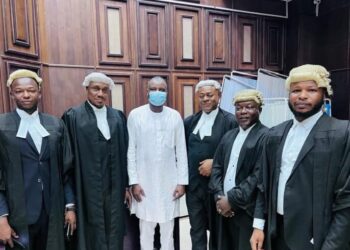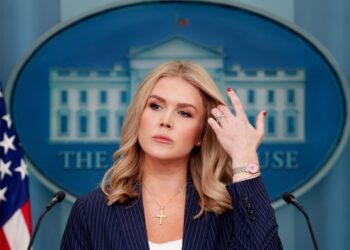By Lucy Adautin
North Korea’s state media announced on Wednesday that approximately 1.4 million young individuals had volunteered or re-enlisted in the army this week, blaming South Korea for a provocative drone incursion that had pushed the already tense situation to the “brink of war.”
The heated rhetoric follows accusations from North Korea last week, claiming that Seoul had sent drones over Pyongyang, scattering a “large number” of anti-North leaflets. In response, North Korea destroyed inter-Korean roads and rail lines on its side of the border recently, warning that the South would “pay a heavy price.”
According to the official Korean Central News Agency KCNA, the young volunteers, including students and youth league leaders, were committed to joining a “sacred war to destroy the enemy with the revolutionary arms.”
KCNA also published photographs showing what it described as young people signing enlistment petitions at an undisclosed location.
“If a war breaks out, the ROK will be wiped off the map. As it wants a war, we are willing to put an end to its existence,” the KCNA report said, using the initials of the South’s official name, the Republic of Korea.
North Korea has previously made similar claims about young people scrambling to enlist at a time of heightened tensions, though such statements from the isolated state are difficult to verify.
Last year, state media reported on 800,000 of its citizens, opens new tab volunteering to join the North’s military to fight against the United States. It also said in 2017 that nearly 3.5 million workers, party members and soldiers volunteered to serve.
According to data from the International Institute for Strategic Studies (IISS), North Korea has 1.28 million active soldiers and about 600,000 reservists, with 5.7 million Worker/Peasant Red Guard reservists among many unarmed units.
Seoul’s defence ministry did not comment on the latest KCNA report, but has warned that if North Korea inflicts harm on the safety of South Koreans, that day will be “the end of its regime.”
Amid escalating tensions, vice foreign ministers from South Korea, the United States, and Japan are set to meet for talks in Seoul on Wednesday.
A representative from Seoul’s unification ministry, which manages inter-Korean relations, suggested that Pyongyang could be attempting to strengthen internal unity and justify potential provocations by heightening and amplifying tensions with the South.
The official also noted that North Korean leader Kim Jong Un might be facing public pressure due to ongoing economic difficulties.
Earlier this year, Kim Jonga-Un labeled South Korea as the North’s “primary foe” and stated that unification was no longer feasible. Since then, North Korea has been actively dismantling inter-Korean relations.
The two Koreas remain technically at war, as their 1950-53 conflict ended with an armistice rather than a peace treaty.
Tensions have also flared over balloons launched since May from the North, carrying what South Korea described as trash. North Korea claimed these were in retaliation to anti-Pyongyang leaflets floated by defectors and activists in the South.
“Overall, there seems to be a sense of legacy building here, of Kim Jong Un looking to fundamentally change the status quo on the Korean Peninsula to preserve permanent two Korean states,” said Jenny Town of the US-based Stimson Center.


































